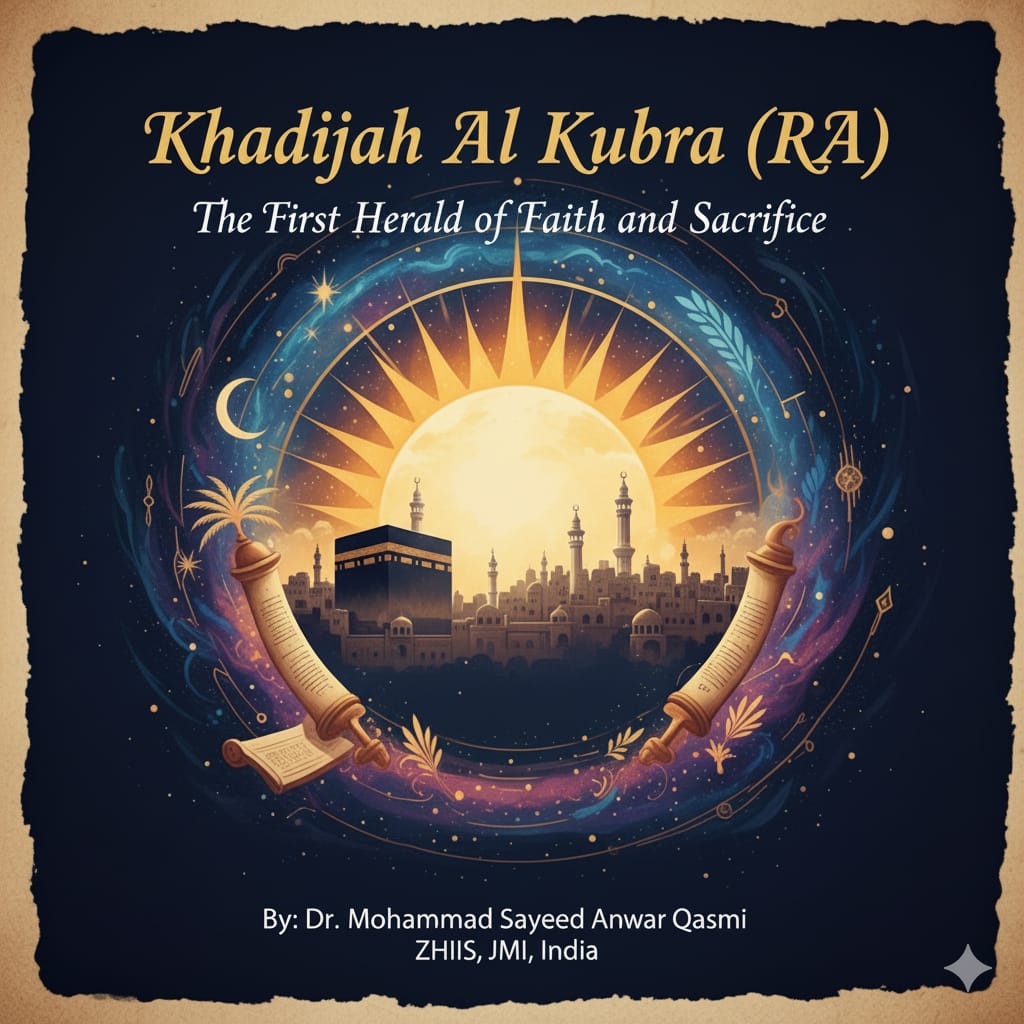
Khadījah Al Kubra (RA): The First Herald of Faith and Sacrifice
Khadījah Al Kubra (RA): The First Herald of Faith and Sacrifice
By: Dr. Mohd Sayeed Anwar Qasmi
ZHIIS, JMI, India
Introduction:
Upon the luminous horizon of the Prophet’s biography, the name of Khadījah bint Khuwaylid (may Allah be pleased with her) shines as a radiant star — the first woman to believe in the divine message, the devoted companion of the Messenger of Allah ﷺ, and the earliest benefactress of the Muslim Ummah. Her life is a sacred chapter of faith, sacrifice, and loyalty — a life that stands as a living interpretation of īmān (faith) and īthār (selflessness). Her heart, refined by purity and illuminated by divine light, embraced the Prophet ﷺ when the world turned away from him. Her wealth, counsel, and affection became the first pillars upon which the house of Islam was raised. The purpose of this humble writing is not merely to recount her virtues, but to reflect upon her character in its moral, social, and spiritual dimensions, and to draw from it the timeless lessons that continue to inspire men and women alike. In every age, humanity seeks guiding lights — and in Khadījah Al kubra (RA), we find a beacon of steadfast faith, intelligent leadership, and noble womanhood.
Lineage:
Khadījah Al kubra (RA) was born into the noble tribe of Quraysh, the most respected clan of Banu Asad ibn ʿAbd al-ʿUzzā. Her father, Khuwaylid ibn Asad, was among the distinguished merchants of Makkah — a man of repute, wisdom, and wealth. Her mother, Fāṭimah bint Zā’idah, belonged to the honoured tribe of ʿĀmir ibn Lu’ayy, renowned for its dignity and refined lineage. Thus, Khadījah Al kubra (RA) descended from a house that combined nobility of blood with excellence of character. In the eyes of the Makkan society, she occupied a high and dignified position — a woman of heritage, virtue, and intelligence. Even before the advent of Islam, she was regarded as one of the most honourable women of Arabia, admired not only for her beauty and refinement but also for her prudence, integrity, and noble disposition. Ibn Saʿd records in al-Ṭabaqāt al-Kubrā that her family was among the chief custodians of honour and trade in Quraysh, and their reputation extended far beyond the boundaries of Makkah.
Life before Marriage:
Even before her blessed union with the Prophet ﷺ, Khadījah Al kubra (RA) was distinguished among the women of Arabia for her chastity, intelligence, and remarkable foresight. In an age steeped in ignorance — when women were denied independence and their voices were seldom heard — she rose as a symbol of dignity, wisdom, and enterprise. From her youth, she had inherited both her father’s fortune and his business acumen. Yet, she did not allow wealth to make her complacent. With keen intellect and shrewd judgment, she managed extensive trade caravans that travelled between Makkah, Yemen, and Syria. Her merchandise was vast, and her caravans were said to equal in size those of all other Qurayshi traders combined. Although trade was then considered a man’s pursuit, Khadījah Al kubra (RA) courageously entered this arena and soon became renowned as “al-Ṭāhirah” — the Pure One. Her dealings were marked by fairness, trust, and honour — qualities rarely found in the bustling markets of Arabia.

She employed trustworthy agents to accompany her caravans, sharing profits with them on equitable terms. Yet she never forgot those less fortunate. A considerable portion of her wealth was quietly spent on orphans, widows, and the poor. She freed slaves, aided the indebted, and extended a compassionate hand to those whom society had forgotten. Her life before marriage thus revealed the hallmarks of a pure heart and a luminous soul — one that combined material wisdom with moral grace. She was a woman of the world, yet untouched by its vanity; a leader in commerce, yet humble before the truth. In this, destiny was silently preparing her for the greatest partnership in human history — the companionship of Muhammad ibn ʿAbdullāhﷺ, the last and final Messenger of Allah.
Marriage to the Prophet ﷺ:
When the Prophet Muhammad ﷺ had reached the age of twenty-five, his noble character was already known throughout Makkah. He was called “al-Amīn” — the Trustworthy, and “al-Ṣādiq” — the Truthful. In that same period, Khadījah Al kubra (RA) was at the height of her success as a businesswoman. Hearing of the Prophet’s honesty and purity, she invited him to take charge of one of her trade caravans to Syria, offering him a fair share of the profits. The Prophet ﷺ accepted her offer and set out on the journey, accompanied by her servant Maysarah. When the caravan returned, Maysarah was full of admiration and wonder. He spoke to Khadījah about the Prophet’s honesty, his serene conduct, and the miraculous signs he had witnessed during the journey — how a cloud had shaded him from the sun, and how the gains from this expedition had exceeded all expectation. Deeply moved by these accounts, Khadījatul kubra (RA) felt a spiritual attraction toward him — not born of worldly desire, but of recognition: she perceived in him the fragrance of truth and the light of prophethood.
After careful thought and counsel with her noble relatives, she expressed her wish to marry Muhammad ﷺ. Her proposal was accepted with joy and dignity. The blessed marriage took place with the approval of her uncle ʿAmr ibn Asad. At that time, Khadījatul kubra (RA) was about forty years old, while the Prophet ﷺ was twenty-five. Yet, the difference in age never shadowed their union. Rather, it became a bond of spiritual companionship and mutual respect. Their marriage was not one of convenience, but of destiny — the union of two noble souls: one prepared by divine wisdom to receive revelation, and the other chosen to console, strengthen, and support him through every trial.
First Revelation and Her Consolation
It was during one of his retreats in the Cave of Ḥirā’ that the Prophet Muhammad ﷺ — absorbed in reflection and worship — received the first divine revelation. The Angel Jibrīl (Gabriel) appeared before him, enveloped in majesty and light, and commanded, “Read!” Overwhelmed by the presence of the unseen, the Prophet ﷺ returned home trembling. As he entered, he called out in a faint voice, “Cover me! Cover me!” At once, Khadījah Al kubra (RA) wrapped him in a cloak, her eyes filled with concern and tenderness. When he found his voice again, he recounted all that had transpired. There was no doubt, no hesitation in her heart — only serene conviction. “By Allah,” she said, “He will never disgrace you. You uphold the ties of kinship, you speak the truth, you bear the burdens of the weak, you help the destitute, you honour your guests, and you support every cause of truth and justice.”
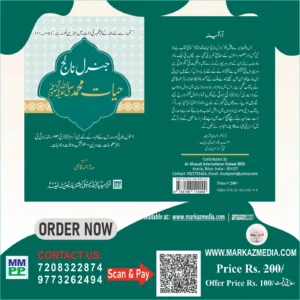
Her words flowed like balm over his trembling heart. In that sacred moment, she became the first believer — the first to affirm that the One who had always guided him in righteousness would never abandon him. She then took him to her learned cousin, Waraqah bin Nawfal, who, after hearing the account, said: “This is the same Angel who came to Moses. Would that I were young to stand beside you when your people drive you out!” Thus, Khadījah Al kubra (RA) became the first heart that opened to Islam, the first voice that comforted the Messenger, and the first home that became a sanctuary of revelation.
Support and Sacrifice
When the Prophet ﷺ began his public call to the Oneness of Allah, the Quraysh turned into fierce opponents. Yet, in that hour of loneliness and hostility, Khadījah Al kubra (RA) stood beside him as an unwavering pillar of strength. She believed in him when others doubted, honoured him when others mocked, and comforted him when others turned away. She spent her entire wealth in the service of Islam — to protect the Prophet ﷺ, to aid the weak, and to sustain the early believers. “She believed in me when people disbelieved,” said the Prophet ﷺ, “she trusted me when people accused me of falsehood, she shared her wealth with me when people withheld theirs, and Allah blessed me with children through her alone.”(Musnad Aḥmad, 26490)
During the boycott in the valley of Shiʿb Abī Ṭālib, she endured hunger and deprivation without complaint, spending every possession she had for the sake of Allah. Even in suffering, her words radiated faith: “O Messenger of Allah! If we are hungry today, it is for Allah’s sake; and whatever is spent in His cause is never lost.” Her courage was quiet yet unyielding — the strength of a believer whose heart had already found contentment in divine love.
Death and Prophet’s Grief
After the years of hardship, Khadījah Al kubra (RA) grew frail. Soon after the end of the siege, her pure soul returned to its Lord. Her passing left the Prophet ﷺ enveloped in sorrow. It was the tenth year of Prophethood, the same year his uncle Abū Ṭālib also passed away — and the Prophet ﷺ named it ‘Ām al-Ḥuzn — The Year of Sorrow. He laid her to rest with his own hands, and though his eyes were filled with tears, his tongue uttered only gratitude and remembrance.ʿĀ’ishah (may Allah be pleased with her) said: “I never felt jealous of any woman as much as I did of Khadījah, though I never saw her. The Messenger of Allah ﷺ used to remember her so often that I would sometimes say, ‘Was there no woman in the world but Khadījah?’”(Ṣaḥīḥ al-Bukhārī, 3818)
The Prophet ﷺ would send gifts to her old friends and say, “She loved them.” And once, Jibrīl (Gabriel) brought Allah’s message of peace to her through the Prophet ﷺ: “Convey to Khadījah greetings of peace from her Lord, and the glad tidings of a palace of pearls in Paradise, where there shall be neither noise nor fatigue.”(Ṣaḥīḥ al-Bukhārī, 3820)Thus ended her earthly life — but her fragrance of faith continues to perfume the Ummah for all time.
Lessons and Legacy
The life of Sayyidah Khadījatul kubra (RA) is a timeless beacon of guidance. Her faith, courage, and selfless devotion remain a living example of what Islam calls every believer to become. She believed before the world believed, reminding us that truth shines first in the heart. She turned fortune into faith, teaching that wealth’s worth lies in its service to others. She proved that strength and purity, intellect and humility, can dwell in one soul. Her bond with the Prophet ﷺ remains the highest model of love built upon faith. Her serenity in suffering teaches that patience is not surrender, but spiritual strength. In her, Islam found its first believer, its first benefactress, and its first example of perfect faith. Her home was the cradle of revelation, her arms the Prophet’s comfort, and her soul the earliest mirror of divine light.
May Allah be pleased with her and grant us the grace to follow her radiant path — a path of faith without doubt, generosity without pride, and love without condition.
You May Also Like
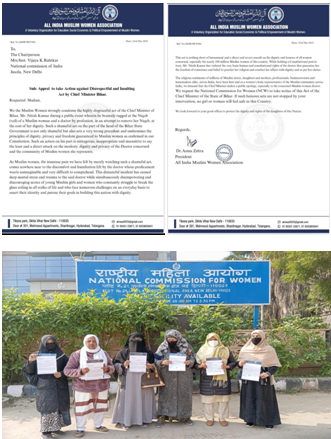 Breaking News
Breaking NewsMuslim Women Delegation Meets National Commission for Women, Submits Complaint Against Bihar Chief Minister
EC News Desk 23/12/2025 A delegation of Muslim women led by Mrs. Mamdooha Majid,...
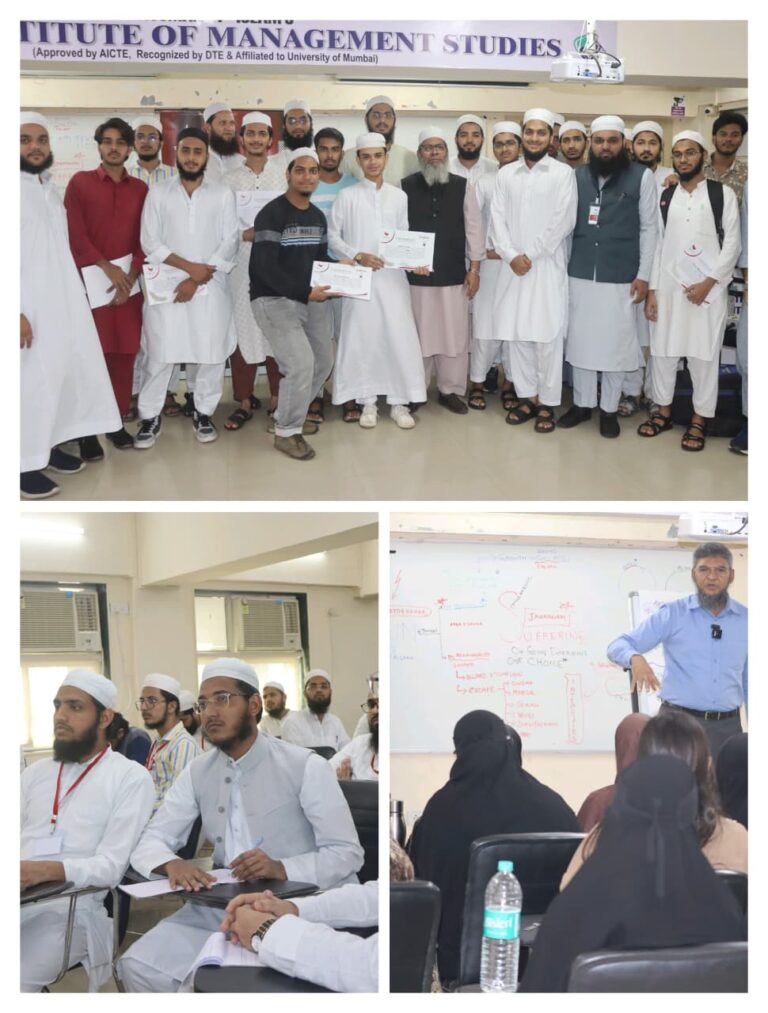 Lifestyle
LifestyleTrailblazer: Where Faith, Philosophy, and Science Converge
Trailblazer: Where Faith, Philosophy, and Science Converge By: Mohammad Taukir Rahmani Lecturer at MMERC,...
 EDUCATION
EDUCATIONEducational Crisis and the Existential Questions of Muslim Youth: An Analytical Study
Educational Crisis and the Existential Questions of Muslim Youth: An Analytical Study By: Abu...
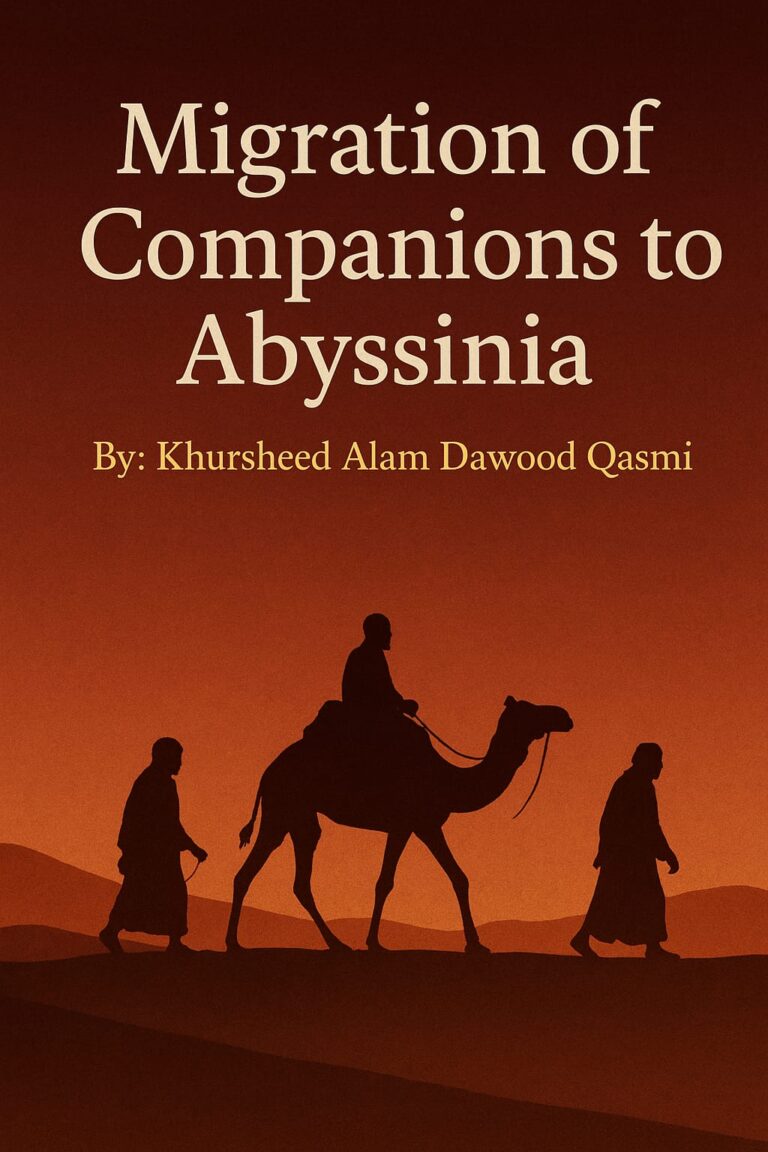 Prophetic Injunctions
Prophetic InjunctionsMigration of Companions to Abyssinia
Migration of Companions to Abyssinia By: Khursheed Alam Dawood Qasmi Opening Words: "Hijrah" is...
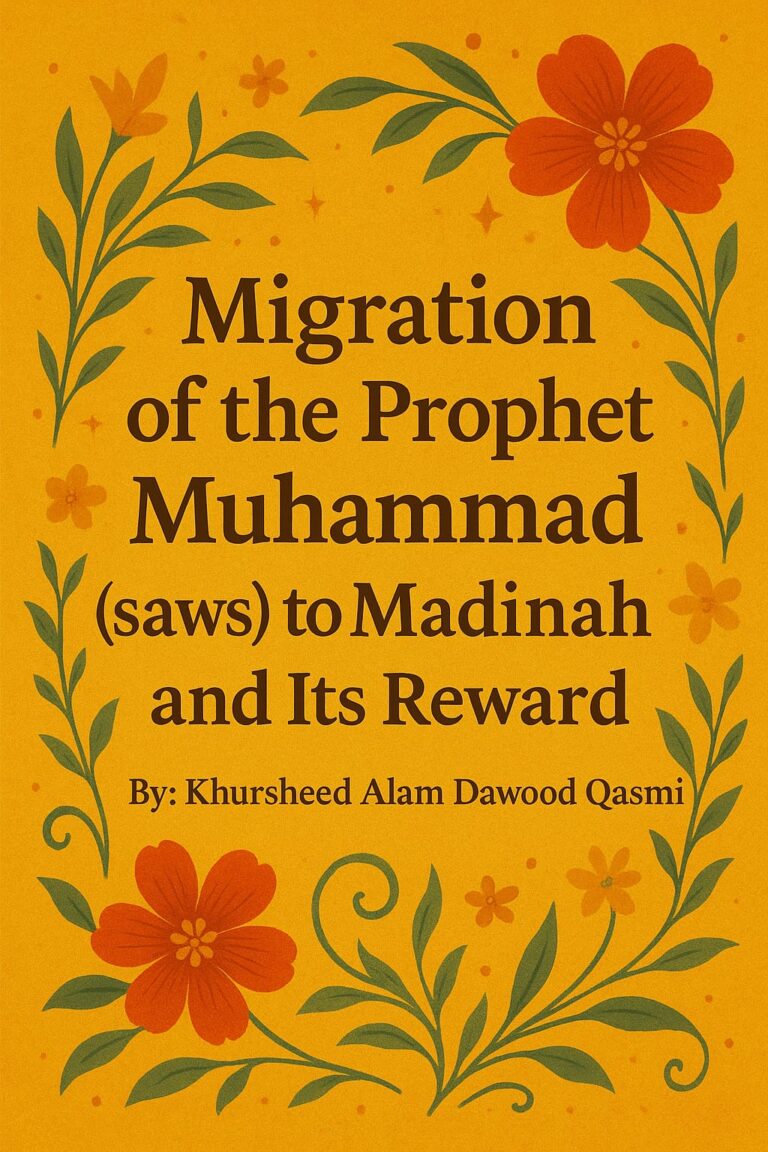 Prophetic Injunctions
Prophetic InjunctionsMigration of the Prophet Muhammad (saws) to Madinah and Its Reward
Migration of the Prophet Muhammad (saws) to Madinah and Its Reward By: Khursheed Alam...
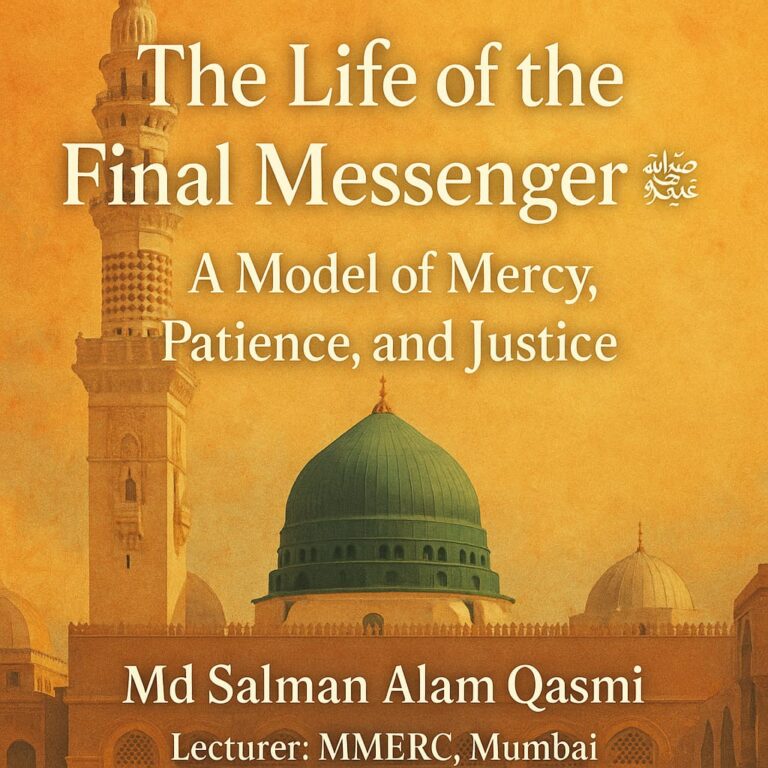 Prophetic Injunctions
Prophetic Injunctions“The Life of the Final Messenger ﷺ: A Model of Mercy, Patience, and Justice”
“The Life of the Final Messenger ﷺ: A Model of Mercy, Patience, and Justice”...

Comments (0)
Leave a Comment